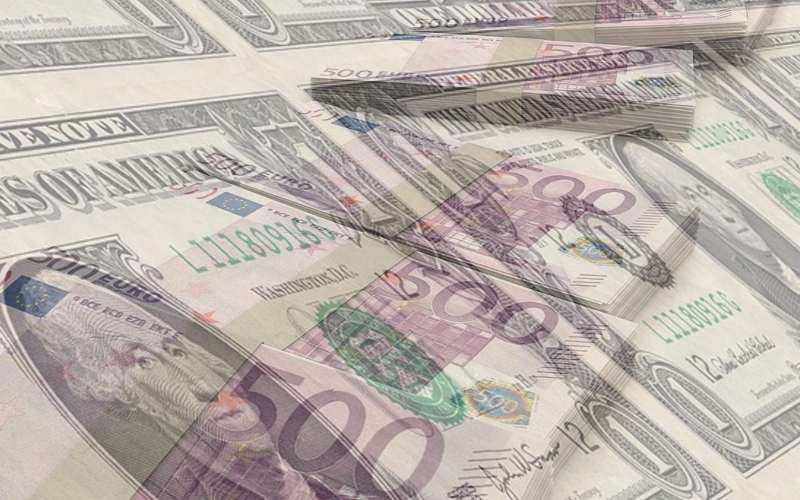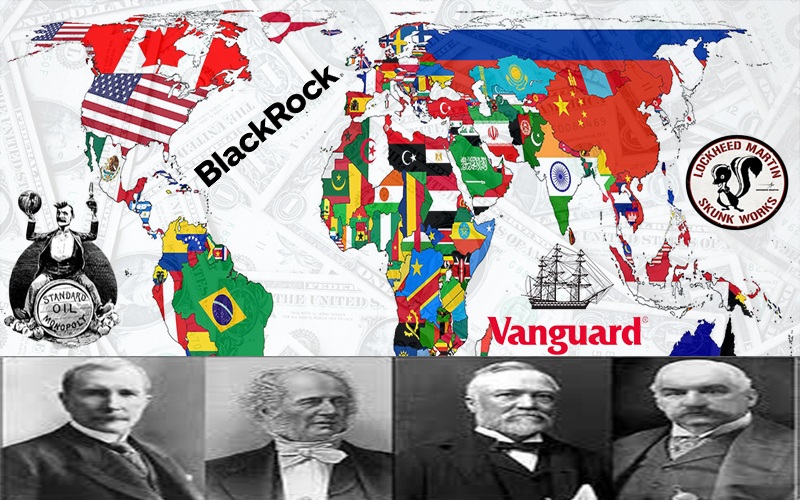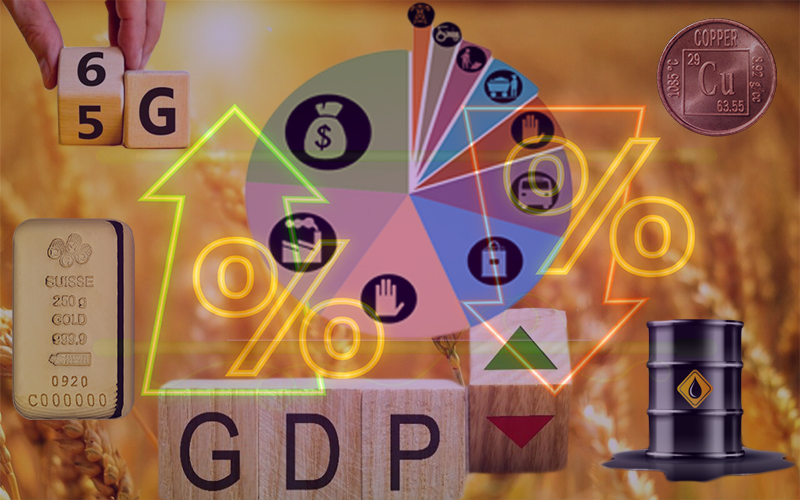There is great confusion globally among the world’s population as to what is owned by whom. There are the ‘Who Owns the World’ type questions and people are easily misled with the usual headline grabbing lists of “The Richest People in the World” as this plays into the media frenzy over ‘celebrities’ and other distracting techniques.  In truth, though there are extremely wealthy individuals who both pioneered the way to control the earth’s resources through very shrewd commodity broking and set up what are today very powerful companies, there are a select group of these entities that control large swathes of the supposedly ‘free ‘market. Their power and reach infects all levels of government so the political clout they wield is often far-reaching and in no way beneficial to the country whose resources they are using, buying or looting. Governments need to make economic decisions and the brokers are integral to the process. As the current global economic crisis brought about by the war in Ukraine has clearly shown, the commodity markets are paramount to our survival and can make or break nations. The obvious political inference is clear and there is no doubt that very large changes to many of the first world nations lifestyles and ingestion of most of the Earth’s resources is coming to an end. It is an unquestioned fact that the Western countries with the inclusion of Japan, Korea, etc. have consumed the lion’s share of global production for a large number of decades. While this was semi acceptable at the time in the West (paternalistic colonialism with a profit driven agenda), the rest of the ‘third’ world though objecting neither had the ability through knowledge and experience to counter this nor the capital required to implement it. Add to that the fact that so many governments in the ‘rest’ of the world have puppet regimes that will take a personal profit over the well being of their people (though this is still true today, it is less so as the fear of regime change formented by experts from the West has diminished).
In truth, though there are extremely wealthy individuals who both pioneered the way to control the earth’s resources through very shrewd commodity broking and set up what are today very powerful companies, there are a select group of these entities that control large swathes of the supposedly ‘free ‘market. Their power and reach infects all levels of government so the political clout they wield is often far-reaching and in no way beneficial to the country whose resources they are using, buying or looting. Governments need to make economic decisions and the brokers are integral to the process. As the current global economic crisis brought about by the war in Ukraine has clearly shown, the commodity markets are paramount to our survival and can make or break nations. The obvious political inference is clear and there is no doubt that very large changes to many of the first world nations lifestyles and ingestion of most of the Earth’s resources is coming to an end. It is an unquestioned fact that the Western countries with the inclusion of Japan, Korea, etc. have consumed the lion’s share of global production for a large number of decades. While this was semi acceptable at the time in the West (paternalistic colonialism with a profit driven agenda), the rest of the ‘third’ world though objecting neither had the ability through knowledge and experience to counter this nor the capital required to implement it. Add to that the fact that so many governments in the ‘rest’ of the world have puppet regimes that will take a personal profit over the well being of their people (though this is still true today, it is less so as the fear of regime change formented by experts from the West has diminished).
This was eminently suitable for the buyers of these commodities, whether agricultural, mineral, cheaply produced goods (with no pollution problems to contend with at home) or even services (call centres, data capture etc.) because the actual cost could be kept artificially low, giving even greater impetus to this method of doing business as profits soared. However like it or not, cometh the change with the advent of the Ukraine Crisis and the USA/EU/UK/NATO response of whacking down unilateral sanctions. This led to a great reset in the cost of basic goods from oil, gas, electricity to food and various now prohibited goods produced in Russia and other nations targeted by these wholly illegal sanctions. Add to this the decline in business globally due to the ‘lockdowns and other measures’ implemented during the ongoing Covid debacle and the money was not being generated to purchase these commodities. The sudden disruption of supply chains because of the ban on that particular commodity (oil from Russia) and the withholding of it unless the prices paid were in a currency acceptable to the seller Roubles for Russia and Euros/Dollars for the EU/USA) made for shortages across the globe. So prices went up and the commodity brokers or traders continued making excessive profits up to a point when the supply of these ‘goods’ could no longer be as easily arranged.Since economies do not stand still or they don’t just wither but die, different business relationships were agreed with the result that the world’s banking and brokering systems were bypassed with no revenue from these transactions coming back to the West.New methods of doing business were implemented with the result that there are now exchanges in Russia, China and India covering many commodities which are for the most part, produced in the largest and most significant volume by these nations. Smaller nations in Africa and South America as well as the East and Pacific have started to trade through these exchanges and again are bypassing the long-dominant Western exchanges.This is a very expensive threat to the income of the Western nations especially the USA and its dollar. It also demarcates the end of the semi subservience of the raw material producers who had to take the offers they were allotted. The West had long been the ‘consumer’ of all the globe produced in varying volumes so their offers of ‘business’ gave them the freedom to dictate the price (often through non legal means- economic hit men, regime change and various forms of sanctions)and the terms. The supply of various commodities has long been known to be semi finite at the stage of today’s technological abilities (there are many tech abilities that work very well but are at an impossible cost) but the supply was guaranteed. Until the recent shift in the ability to obtain let alone purchase certain basic necessities of life commodities like fertilizer, food and energy, the commodity brokers and governments in the West had unlimited access to these materials and even though most nations have strategic reserves, they are not destined to last very long. It was not deemed necessary to have vast costly reserves.

So Who Owns the World or Who has the Money? This reference is to an article which encapsulates the role of commodities and the main players superbly and was to give the option of a worthwhile factual view of the current situation prior to the crisis in Ukraine. The same players are in place and motion but for how long? The situation has changed so radically that no longer is the alliance of brokers and Western governments in control of the availability, access to, and price of these materials and commodities. This has led to back-pedalling on the sanctions by both the USA (fertilizers are off the list) and EU(titanium from Russia is off the list), which has dampened the rise in prices of various goods like oil, but still there were some very steep price rises for the global markets and the populations they serve to contend with. The producers found this very convenient with their incomes increasing by as much as or more than third without the need to increase production and hence supply with all that entails. Without these basics, the economies of the West cannot survive let alone grow and since growth fuels their economies, they are in a quandary. The producers are for the most part ‘accepted’ as semi Western,notwithstanding the fact they have their own distinct very rich and extremely long-lived culture and ethos but with an added twist. The largest like Russia, China and India cannot be bullied, threatened or bribed. No coercion is possible as retaliation is very real. Their integrity cannot be compromised easily, probably not at all, as they are not reliant either economically/politically or militarily subservient to the West. They like Russia have found that supplying the East (Gas and Oil to China, Mongolia, and India etc) will more than commensurate for no longer supplying the West and moreover, they are doing the trade measured in their own currencies, not the Dollar or Western financial instruments. Their incomes not only went up but also they found that their currencies rose quite quickly on the back of the rise in income coupled with the fact they did not need to increase production. This was further increased with the realisation that if they ‘withheld’ the supply of these commodities, the supply chain was severed. Though many of the now ‘sanctioned’ products can be replaced elsewhere in the world by new or existing producers, the lead time from planning to implementation runs from eight months to a year or more, with oil and gas being more than that. Then there is the production process, it always has ‘teething’ issues, which in themselves are usually overcome, but again time is running out. So the West has found itself in a rather precarious position. The usual question at this point is ‘will this lead to war?’ I will not enter that issue in this article but most of human history is littered with wars fought for survival or conquest (bloated survival) and time will inform us all. However, this changes the value or worth of everything because the way it is measured no longer applies across the board with other parts of the globe using more realistic and fact-based data to place value on anything and theyhave not only come to different conclusions but have very different agendas, most of which are seen to be the antithesis of Western doctrine. Their reliance on supplying the West with either raw materials or manufactured goods has been replaced with internal growth in sectors previously supplied with imported goods and a complete switch of markets from the West to the East with South America and Africa has started to gather pace. They have found alternative sources for the goods they import (minerals from Australia) and willing new partners in joint ventures. This gives further impetus regarding the value or worth of assets and all items of value. There is not much point in having the most expensive chateau in France if its real worth is based on a flawed methodology that overinflates select parameters giving a higher value than is realistic. Especially if the ability to heat, maintain and constantly refurbish decaying parts is hampered by the availability and cost of the materials and labour needed, let alone the nation having the money to ensure a working infrastructure to able to do it.

Part of the refocusing of how things, nations, currencies and so on are valued provides us with an answer to ‘What is "GDP" is ‘composed’ of. GDP is an abstract numerical value computed by calculating the total value of the goods and services produced in a country per year. Much of Western GDP figures are obtained by counting consumption like sales of retail goods (made in China or Mexico and imported to USA or Europe) as "production". When these differentials are calculated, many economies seen as low on the scale are seen to be much larger, more resilient and with a very secure and well-maintained infrastructure and reliable supply of all the basic essentials of what we require for life. That does not mean lesser quality or functionality as the ongoing spat over 5G (the Chinese announced 6G already) has shown along with many other examples. Production counts highly as it allows an economy to fulfil its own needs internally giving it greater sovereignty. If Russia’s economy is actually 20% to 30% higher than Germany’s, then the undervaluing value of its assets, let alone commodities, brings the purported riches of the West into question. China’s wealth moves even further with their having a true GDP greater than the USA for a minimum of eighteen months and longer depending on the data. The move away from the Western financial centres and instruements as well as their currencies underlines the decline in actual value of their worth (including GDP) as they do not have the same prospect of growth in the short to medium term (long term is anyone’s guess- the experts disagree but as a species we are fairly poor at predicting the future). So how does this play out in the real world? I know you want to buy it - but can you pay for it? Is the exchange you give me actually as valuable as you say since I no longer take your ‘paper money’ (in all its forms) and unlike you who need my commodities, I am not dependent on your purchase of my goods. It is now a lesser amount of my exports than before and is likely to continue declining as I find /develop new markets and different suppliers using different financial systems and supply routes with all that implies.Add to this the following facts: China currently holds an estimated 84% of global copper, 70% of corn, 51% of wheat, 40% of soybeans, 26% of crude oil, and 22% of aluminium inventories, according to our sources.Those are the global inventories and China has access to the largest reserve of copper in the World in Afghanistan. The BRICS entered the fray and have openly touted the idea of forming a new Reserve Currency backed by tangible assets like gold, silver, oil, copper and other commodities that are becoming increasingly more difficult to find, extract cost effectively, and control. Again what will you pay me with? Can you afford to? If I only accept a backed currency like most major global currencies were before we came off the Gold Standard, then you may have to purchase the backing if I no longer accept your ‘honouring’ of the payment stated on your banknotes. Then too, the BRICS is in the process of expanding so an increasing number of nations (big or small, it adds up) will no longer do the bulk of their financial transactions through the Western financial routes, so causing further loss of income as the whole edifice built upon this trade or parts of it loses its income as national currencies are more often used.
So who owns the world? It’s a moot point as the current view places those with the assets in the West as supreme with the East coming up fast but the truth is more diffuse. Yes, the riches of those who control large swathes of our globe and the extent of their reach cannot be underestimated but whether that still holds true and how limited it really is, is brought into question if the true value of everything is re-calibrated and that those who own/hold the resources of earth which not only sustain us but allow us to forge ahead is taken into account, then the control is no longer as clearly defined as before. The perceived view that the USA (the West) runs the globe has been radically shown to be no longer the case and the ability of Western nations to absorb the costs of the increases in food, energy and fuel prices has not only placed great strain on them economically but has shown their inability to readily switch sources of supply,further undermining their financial stability and their vaunted currencies. It brought the issue of how long they can sustain this economic malaise turning rapidly into recession (no matter what the US President says) adding more bad news to the lowering of their credibility and reliability and, above all else, worth. The basic rule of the stock market is ‘confidence’ and in the world of economics that is also very true as the rise and fall of currencies, stocks, commodities, and even luxury goods shows daily that the bottom line, when all is said and done regarding the ‘data’, comes down to belief to be able to choose an answer/direction to be taken.
We are entering the interim phase but possibly sooner than we foresee, the reality of who owns/controls what and where and to what degree in the world will be answered more fully and transparently. Until then, it must be admitted that the speculation and hype (usually for allied commercial reasons) is rather fun to watch.
To boldly write what is never written.
© The International OutsiderC0.Reg.No SC715702 . All Rights Reserved. Design by HTML Codex